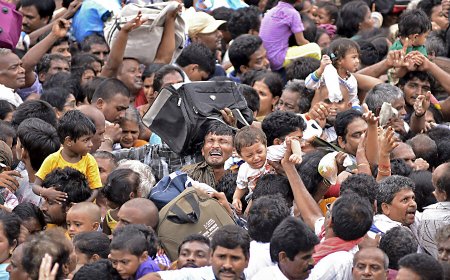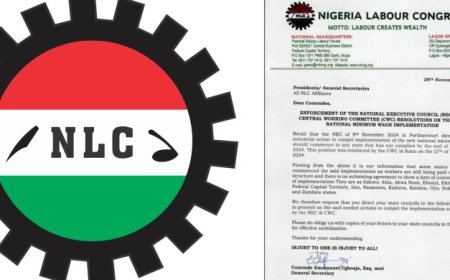The Tofa Dilemma: Moral Responsibility vs Determinism
The debate surrounding moral responsibility and determinism raises questions about whether individuals like Tofa, shaped by toxic upbringing and environment, should be held accountable for their actions. While determinism suggests that prior causes influence human behavior, moral responsibility implies that individuals are responsible for their choices. This article proposes a balanced approach, "moral responsibility in a deterministic world," acknowledging both influences and personal agency. It concludes that moral responsibility remains essential, but considerations of determinism should inform punishment and rehabilitation.

Tofa was born into a toxic family — his father was a severe sex offender and abuser, and his mother managed a brothel that his father owned. Staying in the brothel as well, he witnessed countless physical and sexual abuses performed by his parents on their sex workers. His father has hit his mother severally also without her fighting back or picking offence. In other words, Tofa grew up with the orientations that he could have his way with any woman he wanted, he could hit and abuse anyone that does not do as he instructs, and he could treat anyone disrespectfully. Consequently, Tofa became a sex offender with multiple cases of abuse.
Now, we see here that Tofa was not brought up well; the deterministic factors of his actions include his parents, upbringing, orientation and environment. This births the questions:
Could Tofa have turned out better?
Since there are factors that influenced the way he turned out, should he be morally held responsible for his actions?
One of the longstanding philosophical problems is the debate on Freewill and Determinism. While freewill suggests that human actions are as a result of choices authentically made by them, determinism says that every human action is the outcome of prior causes that have played out. For example, if Tofa grew up in such a toxic environment and decided to not follow his parents’ foot steps, then he has exercised freewill, on the other hand, Tofa’s upbringing is a prior cause that has instilled in him, certain orientations that made him turn out as an offender, both sexual and physical — this suggests determinism.
The discussion of freewill and determinism further births the contentious issue of whether or not determinism is a challenge to moral responsibility. Moral responsibility and determinism have been contested in philosophical discourses over the years, based on their differing positions and how one may or may not affect the other. Moral responsibility in philosophy is the status of morally deserving praise, blame, reward or punishment for an act or omission in accordance with one's moral obligations.(https://en.m.wikipedia.org/wiki/Moral_responsibility)
In other words, moral responsibility implies that individuals are responsible for their actions, decisions and consequences. It further involves the idea that individuals are moral agents equipped with the capacity to make choices and act, they are intentional and act with purpose and awareness, they recognise the consequences of their actions and could be blamed or praised for their actions.
From the previous illustration, in philosophy, Tofa is called a moral agent who has moral responsibilities, because of this status — he is liable to be morally responsible for his actions through appropriate authorities. However, the recurring debate on moral responsibility and determinism brings another perspective into limelight – the perspective that Tofa grew up under parents who were morally ‘messed up’ and whatever he learnt and knew was instilled and imprinted in him since infancy, so growing up badly and devoid of moral inclinations was inevitable for him.
Now, while we blame his parents for such orientation, what fault has he? After all, he did not choose his parents as well as the environment he grew up in. Should he then be held responsible for his actions whatsoever? Should he not be exempted from punishments since he couldn’t have turned out better?
Here are the issues!
While some philosophers challenge the notion of moral responsibility in the face of determinism, some support the notion and some blend both notions. Most people that challenge the notion of moral responsibility also challenge the notion of free will, claiming that all human actions are predetermined and influenced by external factors, hence, the absence of freewill.
Below are challenges against moral responsibility:
• Determinism: moral responsibility is challenged by determinism on the reason that humans actions, inactions and decisions are predetermined. The set of philosophers under this challenge ask if one should be held responsible for their actions since they could not control it.
• Causal factor: Tofa is without morals, the primary factor that caused this outcome are his parents. Cause and effect is a fundamental concept in philosophy that states that for every cause, there is an effect, and for every effect, there is a cause. In that, a car can not start on its own if it is not controlled, and for a car that works well and is controlled by a driver, the effect would be its motion or immobility . In other words, Tofa’s outcome was caused by parental and environmental factors.
On the other hand, those that welcome the idea of moral responsibility express the following;
• Consciousness: that humans possess consciousness which enables them to be self-aware and make intentional decisions. Tofa, as a moral agent, as far as he is aware that what he was doing was bad as well as its consequences, he should be held responsible for his actions.
• Social Utility: that for order to be existent in society, there is a need to hold individuals responsible for their actions. If there is constant attribution of Tofa’s behaviors to his past and upbringing, and an overlook of his actions, many other ‘Tofas’ would continue to commit crimes, making the society lose law and order.
• Freewill: that humans have free will to do and undo, whether there are external influencing factors or not, individuals know what is right and not and have the choice to do either.
In my opinion, while not disputing neither moral responsibility nor determinism, I would merge them into what I would call 'moral responsibility in a deterministic world'. This version involves an acknowledgement of both, a version that stands to accept that there are indeed factors that may or may not influence human decisions, in order words, we exist in a deterministic world (mild determinism), however, whilst we are influenced by these factors, we still possess the will to stand against the influence and do what its right.
In actuality, my discourse on determinism and moral responsibility springs from the eternal debate between freewill and determinism and the non-ending deeper discourses that spring out of it. What I am saying in essence is that moral responsibility is just a part of the questions that arises from the freewill/determinism discussion, and this is just an overly simplified article, best know that there are deeper issues and discourses entrenched in the topic.
Hence, In conclusion, Tofa even though was influenced wrongly since infancy, as long as he did not grow in the jungle and lived in a society where rules and regulations exist, the determining factors of his upbringing should not be considered, if at all they should be considered, they should be in form of rehabilitation for his mental health whilst still serving his punishment. While we agree therefore, that we can be influenced, the role of moral responsibility should never be overlooked. Every man should be responsible for his actions, just that there should be proper evaluation of reasons behind every action in order to approach punishments fairly and strategically. The knowledge of the existence of influence - determinism, would also go a long way in trying to avoid a toxic and harmful environment for the human mind. In essence, there should be a strive to provide a proper and healthy environment for every member of the society - a healthy environment is a healthy mind; a healthy mind is a healthy society!
What's Your Reaction?





































































































